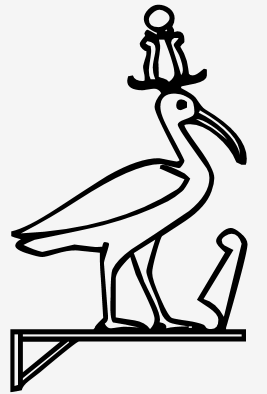Dyad (δυάς) is the ancient Greek word for “two.” The ancient Pythagoreans considered the numbers 1-10 each to embody certain qualitative aspects (in addition to their quantitative function). Speculation on the qualities of the first ten numbers is sometimes called “arithmology” by modern scholars, in order to distinguish it from from the modern sense of “arithmetic.”
On the Dyad (περὶ δυάδος):
The Theology of Arithmetic 7.15-8.4: “Among the virtues, they [i.e. the Pythagoreans] liken it to courage (ἀνδρεία): for it has already advanced into action. Hence too they used to call it ‘daring’ (τόλμα) and ‘impulse’ (ὁρμή).
“They also gave it the title ‘opinion’ (δόξα), because truth and falsity reside in opinion. And they called it ‘movement’ (κίνησις), ‘generation’ (γένεσις), ‘change’ (μεταβολή), ‘division’ (διαίρεσις), ‘length’ (μῆκος), ‘multiplication’ (αὔξησις), ‘addition’ (σύνθεσις), ‘partnership’ (κοινωνία), ‘relativity’ (τὸ πρός τι), and ‘the ratio in proportionality’ (λόγος… ἐν ἀναλογίᾳ). For the relation of two numbers is of every conceivable form.”
The Theology of Arithmetic 11.16-12.12: “With regard to what, therefore, did the ancients call the dyad ‘inequality’ (ἄνισος) and ‘deficiency’ (ἔλλειψις) and ‘excess’ (πλεονασμός)? Because it is taken to be matter (ὕλη), and if it is the first in which distance (ἀπόστασις) and the notion of linearity (πλευρά) are visible, then here is the source of difference (διαφορά) and of inequality (ἀνισότης)….
“It is also called ‘deficiency’ (ἔλλειψις) and ‘excess’ (πλεονασμός) and ‘matter’ (ὕλη) – for which, in fact, another term is the ‘indefinite (ἀόριστος) dyad’ – because it is in itself devoid of shape and form and any limitation, but is capable of being limited and made definite by reason and skill.”
Additional dyadic terms from The Theology of Arithmetic:
- formless (ἀσχημάτιστος)
- infinity (ἄπειρον)
- Erato (Ἐρατώ)
- anguish (δύη)
- endurance (ὑπομονή)
- hardship (τλημοσύνη)
- justice (δίκη, as if it were δίχη, “split, dichotomy”)
- Isis (Ἴσις)
- nature (φύσις)
- Diometor (Διομήτωρ, “mother of Zeus”)
- Rhea (Ῥέα)
- flux (ῥύσις)
- extension (τάσις)
- moon (σελήνη)
Isopsephy of 2 (prime):
- ἄα (aa) – body of water
- ἃ ἃ or ἇ ἇ (ha ha) –ha ha, an expression of laughter
